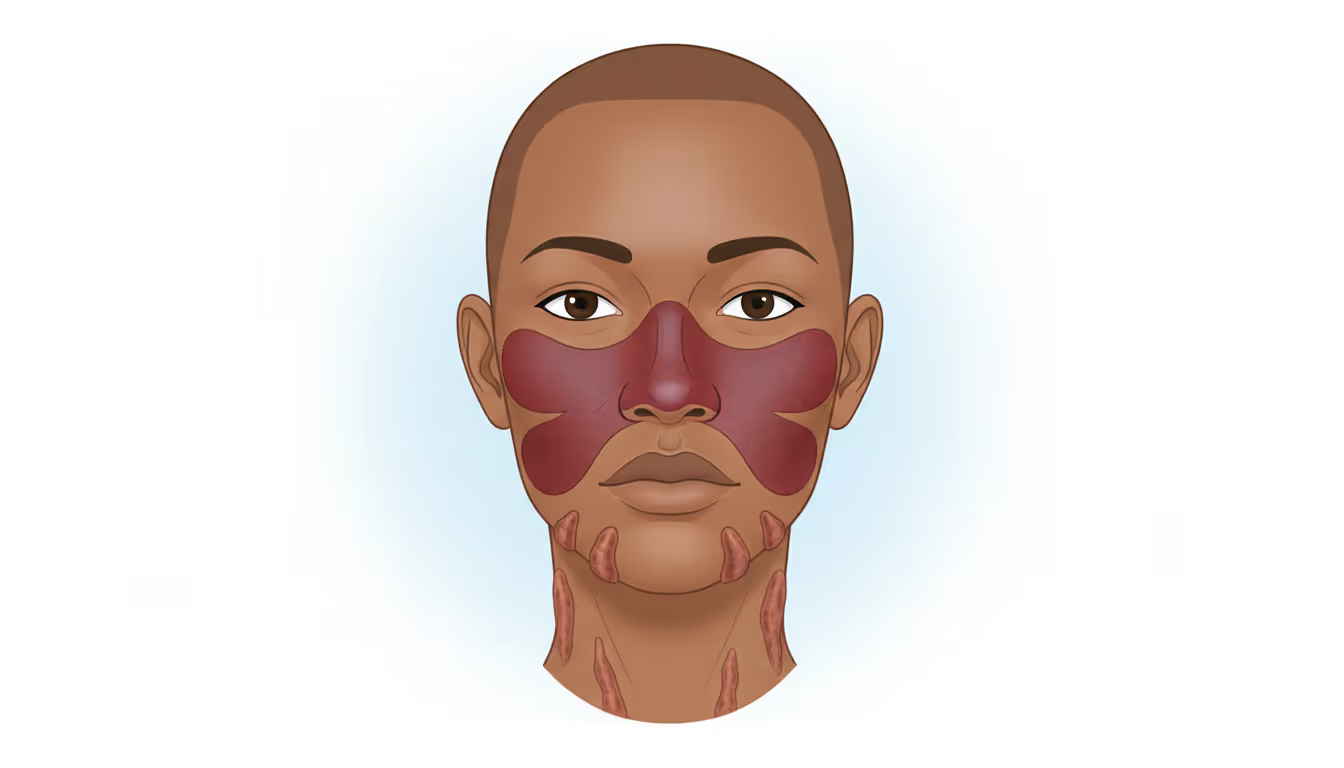
Lupus is a persistent inflammatory condition triggered by the immune system attacking the body. Individuals with lupus have atypical antibodies in their bloodstream that mistakenly target their own tissues. This disease can affect the skin, heart, kidneys, joints, and nervous system. It often begins with a red or dark, scaly rash on the nose and cheeks, known as a butterfly rash due to its unique shape. As inflammation persists, scar tissue, including keloid scars, may develop, especially in those prone to keloid formation. The exact cause of lupus remains unknown, but genetic factors, infections, ultraviolet exposure, and certain medications might contribute. Lupus is more frequently seen in women compared to men and is most prevalent among people of African descent, though it affects all ethnic groups. Diagnosis involves symptom observation and comprehensive blood tests for immune activity indicators. Early intervention is crucial to halt disease progression. A rheumatologist typically manages lupus treatment, aiming to alleviate symptoms and address the underlying autoimmune response. Treatment options may include steroids, anti-inflammatory drugs, mood stabilizers, intravenous therapies, and specific treatments when internal organs are involved. For further information, refer to discoid lupus and systemic lupus erythematosus.




